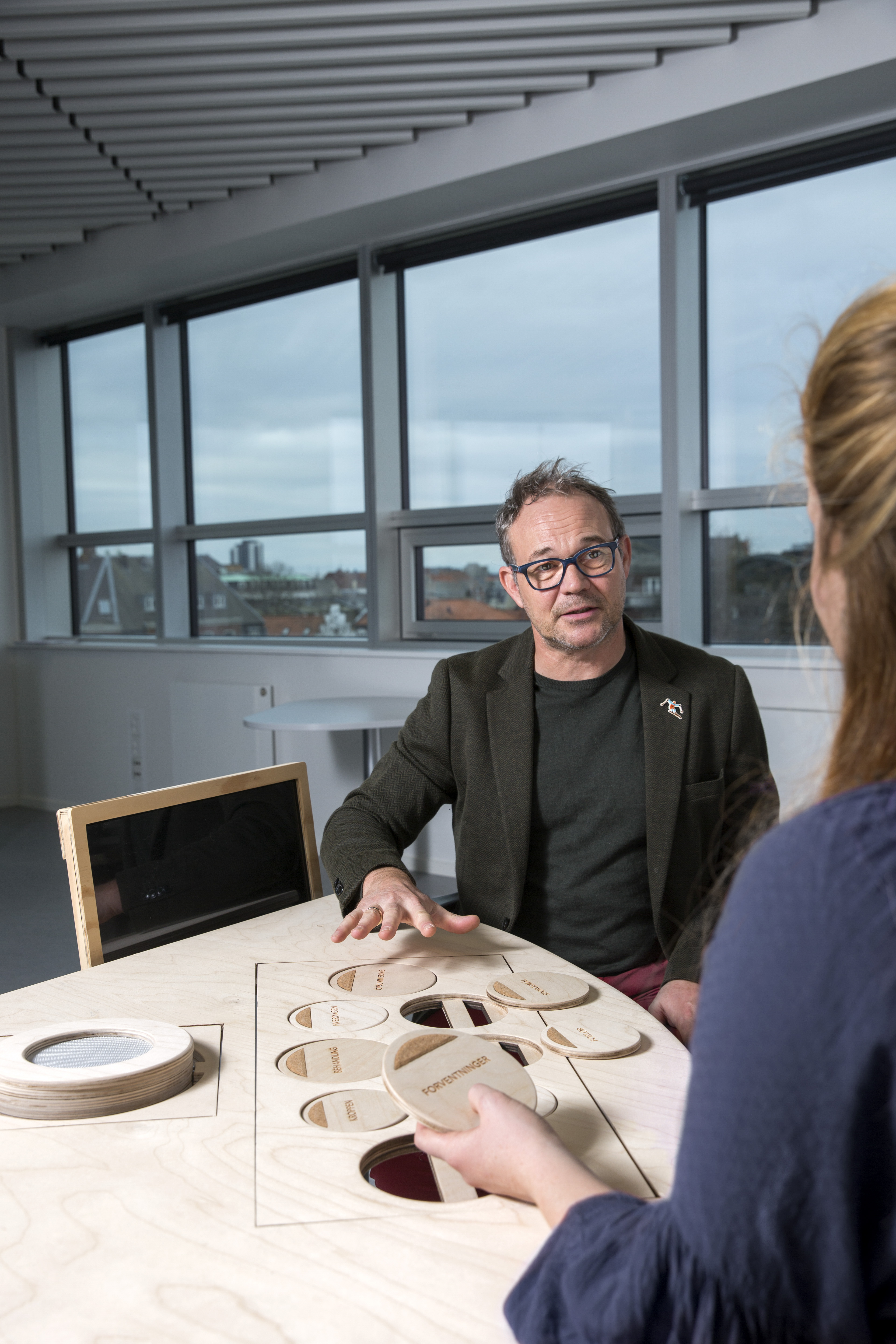New consultation table makes difficult conversations with patients easier
A Danish study has highlighted on a number of problems and possible solutions for consultations between physicians and cancer patients. Now, researchers have designed an interactive table that can improve these conversations.

The first consultation after a cancer diagnosis is important. This is where the patient is informed about the disease, treatment options, medication plan and possibly also the chances of survival.
International studies show that, after the first consultation, cancer patients remember just 40-80 per cent of what they have been told, and that half of the information they remember is wrong.
A research group from Aarhus University has therefore investigated the possibilities for improving cancer consultations by means of technology-based tools, and they are now ready with a prototype interactive table that could improve the quality of communication about diagnosis and treatment.
"Our observations of consultations and our design processes with patients, relatives and physicians show that there are significant benefits to be gained from interactive tools and interiors that can support the difficult conversation," says Professor Peter Gall Krogh, Aarhus University.
Interactive table structures and saves the conversation
Professor Krogh and his research group have conducted a series of studies of consultations between physicians, patients and relatives. Working with the Department of Oncology at Herning Hospital, over a six-month period Professor Krogh has collected data, completed user-inclusive design processes, designed and finally tested a prototype interactive table for the difficult conversation.
"We have made a prototype table that can give better consultations between physicians, patients and relatives. Our basic design intention has been to change the balance in consultations between healthcare professionals, patients and relatives and create a greater degree of reciprocity, trust and dialogue," says Peter Gall Krogh.
The tabletop is designed as a quarter circle with a number of interactive blocks which allow all the parties to influence the content and process of the consultation. The blocks are marked with the typical topics and structure of the conversation such as ‘treatment’, ‘side effects’ and ‘everyday life’.
The blocks are placed so that the physician, patient and relatives can all decide and structure the content of the consultation.
In addition, the table has an integrated microphone so that an audio recording of the conversation can be taken and saved; indexed corresponding to the markings on the blocks.
After the interview, the patient will receive a subject-indexed audio file to help access the information. The audio file can also act as a supplement to the information about the patient filed with the physician.
"The interactive table solves two challenges. Firstly, it’s possible to establish a better informed and differentiated dialogue between the parties around the table; a dialogue that takes its outset in the individual patient's specific needs and disease and the patients’ ability to manage information. Secondly, it’s possible to store and organise important information in an audio file format," says Peter Gall Krogh.
The process of designing the interactive table is described in a scientific article, which was awarded the Best Paper Award at the world's largest and most important research conference on interaction design (CHI 2018).
Ready for market soon
The first design prototype of the table has been tested in a number of intervention studies involving patients and relatives, and the results so far are good. Herning Hospital is therefore looking at possibilities to make it a permanent fixture at a new hospital (DNV Gødstrup), which is currently under construction.
The researchers hope that in a short time they will be able to commercialise the design and technology in cooperation with relevant companies.
"Right now, the table is a research prototype, and we need a commercial partner to look at how it can be implemented profitably in the health sector. In the long term, we hope that the table can be developed further and also be of benefit at general practitioners and at other places where difficult conversations take place, for example at psychologists, banks or lawyers," says Peter Gall Krogh.
